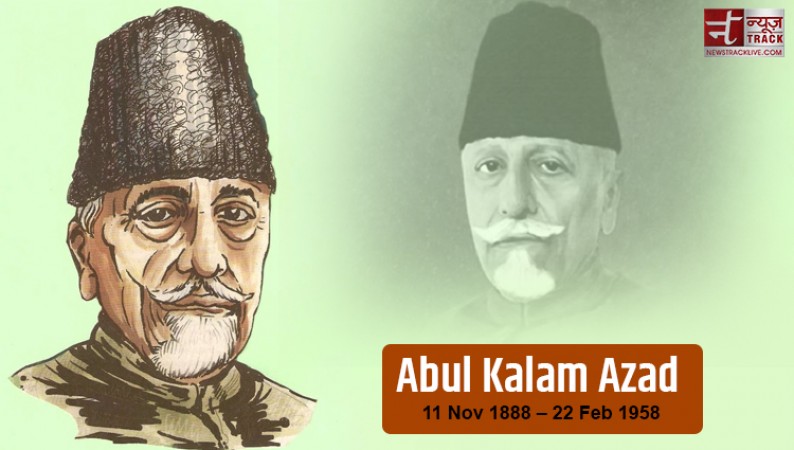
Every year, November 11 marks the birth anniversary of Maulana Abul Kalam Azad, the Islamic theologian, writer, and senior leader of the Indian National Congress. Firoz Bakht, also known as Muhiyuddin Ahmad, was Azad's full name and he was born in 1988. He died of a stroke on February 22, 1958
Interesting Facts to learn About Maulana Abul Kalam Azad:
1. Abul Kalam Azad was one of the pioneer organisers of the Dharasana Satyagraha-a protest against the British salt tax in the year 1930.
2. Azad and two other people were among the original founders of the Jamia Millia Islamia University, which had its beginnings at Aligarh, Uttar Pradesh. Azad assisted in the relocation of the university campus from Aligarh to New Delhi fourteen years later.
3. Abul Kalam Azad served in Congress before taking office as the party's youngest party leader at the age of 35 in 1923.
4. Abul Kalam Azad was also a journalist who published pieces in several Urdu journals. He also created the monthly periodical Lissan-us-Sidq, which was published until 1905. For around eight months in 1904, he was the editor of the Amritsar-based journal Vakil. Azad started a weekly Urdu newspaper called Al-Hilal in 1912.
5. As a journalist, Azad utilised to disseminate writings that criticised the British Raj and emphasised the issues that ordinary people faced. Due to his leadership in promoting Hindu-Muslim reconciliation and his support for socialism and secularism, Azad has been hailed as one of the most significant national political personalities of his time.
6. Azad was self-taught and homeschooled; he spoke multiple languages fluently, including Arabic, Bengali, and Persian.
7. During his time as education minister, the cabinet founded the University Grants Commission (UGC) in 1953 and the first Indian Institute of Technology (IIT) in 1951.
8. From 1919 through 1924, Azad oversaw the Khilafat campaign, which is when he first met Mahatma Gandhi.
9. To encourage education among the social classes with the lowest levels of education, the Ministry of Minority Affairs established the Maulana Azad Education Foundation in 1989.
10. Azad served the term for more tha a decade from 1947 to 1958. He was posthumously honoured with the country's highest civilian award -- Bharat Ratna in 1992.
Let us Honor Maulana Abul Kalam Azad on his birthday. He was a revolutionary thinker and philosopher who played an uplifting role in the struggle for independence. He worked to promote fraternity in society and was passionate about the field of education.
World Freedom Day, November 9, 2022: Best Messages, Quotes,Wishes
History, Significance of National Cancer Awareness Day November 7